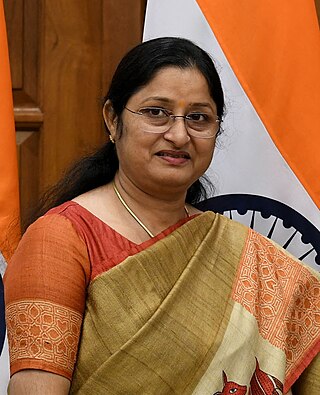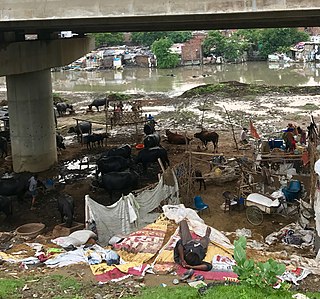Related Research Articles
Samaritans is a registered charity aimed at providing emotional support to anyone in emotional distress, struggling to cope or at risk of suicide throughout the United Kingdom and the Republic of Ireland, often through its telephone helpline. Its name derives from the biblical Parable of the Good Samaritan, although the organisation itself is not religious.

The National Society for the Prevention of Cruelty to Children (NSPCC) is a British child protection charity founded as the Liverpool Society for the Prevention of Cruelty to Children (LSPCC) by Thomas Agnew on 19 April 1883. The NSPCC lobbies the government on issues relating to child welfare, and creates child abuse public awareness campaigns. Since the 1980s, the charity has had statutory powers allowing it to apply for help on behalf of children at risk. In the 1990s, the charity's publication, Satanic Indicators, fueled panic in social workers who went and accused parents and removed children from homes when they should not have. It operates a help line. The Paddington Bear character has partnered with the charity to raise funds for the charity. NSPCC operates telephone helplines.

Childline is a British counselling service for children and young people under 19 in the United Kingdom provided by the National Society for the Prevention of Cruelty to Children. They deal with any issues which cause distress or concern; some of the most common issues include child abuse, bullying, mental illness, parental separation and or divorce, teenage pregnancy, substance misuse, neglect, and psychological abuse.

Dame Esther Louise Rantzen is an English journalist and television presenter who presented the BBC television series That's Life! for 21 years, from 1973 until 1994. She works with various charitable causes and founded the charities Childline, a helpline for children, which she set up in 1986, and The Silver Line, designed to combat loneliness in older people's lives, which she set up in November 2012.
The Concerned for Working Children (CWC) is a non-profit organisation based in Bangalore, India, and known internationally for its work in empowering children to become the key protagonists in solving their own problems. While eradication of child labour remains the key focus of CWC, the organisation opposes simple criminalisation and addresses related issues such as children's rights, gender equality, community development, education and advocacy. Founded in 1985, it has organised Bhima Sangha, a union of and for working children that now has 20,000 members, and launched the National Movement of Working Children. Internationally, it co-founded the International Working Group on Child Labour (IWGCL), and CWC child delegates have contributed to ILO conferences on child labour.
Prayas JAC Society is a Non-governmental organization based in Delhi, India. It was founded in June 1988 by ex-Delhi DCP Amod Kanth after a fire destroyed makeshift homes and ragged shelters built by children in the slums of Jahangirpuri in Delhi. Amod K Kanth, former Director General of Police(DGP) of Arunachal Pradesh cadre and DCP for Crime in Delhi, was posted in Delhi when the fire broke out and he visited the site of the fire as part of his duty and was concerned on welfare of children and this prompted the birth of Prayas in a one-room in Jahangirpuri with the help of friends from the Delhi Police and the Delhi School of Social Work in a small way.

The Ministry of Health and Family Welfare, also known by its abbreviation MoHFW, is an Indian government ministry charged with health policy in India. It is also responsible for all government programs relating to family planning in India.

Child Rights and You (CRY) is an Indian non-governmental organization (NGO) that works towards ensuring children's rights.

The Ministry of Labour & Employment is one of the oldest and most important Ministries of the Government of India. This is an India's federal ministry which is responsible for enforcement of labour laws in general and legislations related to a worker's social security. The Ministry aims to create a healthy work environment for higher production and productivity and to develop and coordinate vocational skill training and employment. However, Skill Development responsibilities, such as Industrial Training and Apprenticeship responsibilities were transferred to the Ministry of Skill Development and Entrepreneurship from 9 November 2014. The Ministry launched the National Career Service portal on 20 July 2015 to help bridge the gap between job providers and job seekers.

The Ministry of Women and Child Development, a branch of the Government of India, is an apex body for formulation and administration of the rules and regulations and laws relating to women and child development in India. The current minister for the Ministry of Women and Child Development is Annpurna Devi having held the portfolio since 2024.

Salaam Baalak Trust (SBT) is an Indian non-profit and non-governmental organization which provides support for street and working children in the Delhi-NCR. It was established in 1988 with the proceeds from the film Salaam Bombay! directed by Mira Nair. Programs at SBT include repatriation, providing education, basic literacy and schooling, full care facilities for the young, drop-in shelters for older children, physical and mental health care, life-skills education, vocational training, sports, job placement and counselling in HIV/AIDS.

Homelessness is a major issue in India. The Universal Declaration of Human Rights defines 'homeless' as those who do not live in a regular residence. The United Nations Economic and Social Council Statement has a broader definition for homelessness; it defines homelessness as follows: ‘When we are talking about housing, we are not just talking about four walls and a roof. The right to adequate housing is about security of tenure, affordability, access to services and cultural adequacy. It is about protection from forced eviction and displacement, fighting homelessness, poverty and exclusion. India defines 'homeless' as those who do not live in Census houses, but rather stay on pavements, roadsides, railway platforms, staircases, temples, streets, in pipes, or other open spaces. There are 1.77 million homeless people in India, or 0.15% of the country's total population, according to the 2011 census consisting of single men, women, mothers, the elderly, and the disabled. However, it is argued that the numbers are far greater than accounted by the point in time method. For example, while the Census of 2011 counted 46,724 homeless individuals in Delhi, the Indo-Global Social Service Society counted them to be 88,410, and another organization called the Delhi Development Authority counted them to be 150,000. Furthermore, there is a high proportion of mentally ill and street children in the homeless population. There are 18 million street children in India, the largest number of any country in the world, with 11 million being urban. Finally, more than three million men and women are homeless in India's capital city of New Delhi; the same population in Canada would make up approximately 30 electoral districts. A family of four members has an average of five homeless generations in India.

Jeroo Billimoria is an Indian social entrepreneur and the founder of several international NGOs. Her work has been featured in several books. Her most recent initiatives include Child and Youth Finance International (CYFI), which Jeroo founded in 2011, Aflatoun, Childline India Foundation and Child Helpline International. Her most recent initiative is Catalyst 2030.
Butterflies is a registered voluntary organization that has been operating in Delhi since 1989. The organization focuses on assisting vulnerable children, particularly those on the streets. By employing a rights-based and participatory methodology, Butterflies aims to provide education and life skills to these children.

Childline South Africa is a non-profit organisation which works to protect children from violence and further the culture of children's rights in South Africa. Childline runs a national, 24-hour, toll-free telephone counselling service for children and adults, handling over 1 million calls annually. In addition to the Crisis Line telephone counseling service, Childline also offers services such as online counseling, training programmes for continuous professional development, training on court preparation and workshops on child law.

Sankalp India Foundations is a Bangalore-based non-government organisation. It is a youth organisation working for blood donation, thalassemia, bone marrow transplantation and disaster relief.
Vandrevala Foundation is an NGO established by Cyrus Vandrevala and Priya Vandrevala in 2008. In 2009, the foundation launched the "Mental Health - India" initiative to raise awareness and provide services for emotionally distressed individuals.
The Integrated Child Protection Scheme (ICPS) is a governmental program implemented by the Government Of India to help secure the safety of children, with a special emphasis on children in need of care and protection, juveniles in conflict or contact with the law and other vulnerable children. Its primary purpose is to create a central structure to provide oversight and standardization for pre-existing and evolving child protection schemes in India. Proposed in 2006 and implemented in 2009, the ICPS is administered at the state level by state child protection committees and societies and at the district level by district child protection societies, among other institutions.
Shrimad Rajchandra Hospital is a charitable, multi-bed hospital located in the city of Dharampur in the Valsad district of Gujarat, India. The hospital currently operates under the administration of Shrimad Rajchandra Love and Care, a non-governmental organisation (NGO) which runs the hospital and other charitable activities. Established in 2003, it provides medical care at nominal rates or completely free of cost. Hospital records show that over 125,000 patients were treated in 2016, and over 1 million patients have been treated since the inception of the hospital in 2004.
References
- 1 2 3 4 5 6 "Police personnel will now answer Childline 1098 calls". The Hindu. 16 March 2021. Retrieved 7 April 2021.
- 1 2 "Labour Ministry Government of India" (PDF). Labour Ministry. 21 May 2015. Archived from the original (PDF) on 4 March 2016. Retrieved 20 October 2015.
- 1 2 3 4 5 6 7 8 9 10 11 12 13 14 15 16 17 18 Pinglay, Prachi (28 January 2020). "All about Childline 1098: How it helps children in distress". Citizen Matters, Bengaluru. Retrieved 7 April 2021.
- ↑ "History". Childline. Retrieved 9 May 2013.
- ↑ "Childline Service". Ministry of Women and Child Development. Archived from the original on 17 May 2013. Retrieved 8 May 2013.
- ↑ "Childline Advisory Board formed for Garo Hills'". The Morung Express. 25 April 2013. Archived from the original on 29 June 2013. Retrieved 8 May 2013.
- ↑ "16 children rescued from city eateries". DNA India. 3 May 2013. Retrieved 8 May 2013.
- 1 2 3 "CHILDLINE 1098 partners with Uber to provide free rides to child care profession". Mint. 14 October 2020. Retrieved 7 April 2021.
- ↑ "Contact Us." Childline India. Retrieved on 21 February 2017. "CHILDLINE India Foundation 406, Sumer Kendra, 4th floor, P. B. Marg, Worli, Mumbai 400 018, Maharashtra"